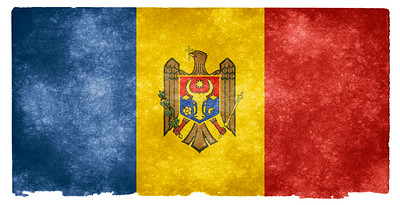
The parliament of Moldova on March 17 voted to remove references to the “Moldovan” language from the country’s constitution and enshrine Romanian as the official language for all legislation. Lawmakers asserted that “Moldovan” is actually indistinguishable from Romanian, and that the notion that it is a separate language is a product of Soviet propaganda. The vote was applauded by Romania, whose foreign minister Bogdan Aurescu stated that the Moldovan language is an “artificial construct.”
But pro-Russian Moldovan lawmakers assailed the move—as did the Russian Foreign Ministry, whose spokesperson Maria Zakharova snarkily suggested that Aurescu is an “artificial construct.” Zakharova claimed that Moldovan is a distinct and older form of Romanian, which is now “officially preserved only in Transnistria,” the breakaway region of Moldova hosting Russian troops. (PRI, Romania Insider, RFE/RL)
Moldova swapped hands between Romania and Russia for centuries, before winning independence from the USSR in 1991, consolidated in a popular referendum in 1994. In recent years, an initiative has emerged in Romania to promote annexation of Moldova, led by a parliamentary group called “Friends of the Union.” (Black Sea)
Image: Nicolas Raymond via Flcikr





Moldova pro-EU rally attracts over 75,000
A pro-government rally in the Moldovan capital Chisinau attracted over 75,000 people May 21 in support of the country’s movement toward integration with the European Union. The rally comes amid Moldova’s accelerated application to join the EU, announced on March 3, and alleged Russian attempts to undermine Moldovan democracy.
European Parliament President Roberta Metsola spoke to the crowd, saying “We are living in times of instability. Yet, you can be proud of the fact that those who sought to destabilize your country, have been unsuccessful. Moldova stands proud despite the threats and the intimidation.” Metsola went on to praise current Moldovan President Maia Sandu, saying, “I am honored to stand here with Maia Sandu, a woman who personifies what it means to be European.” (Jurist)
Moldova rules pro-Russia opposition party ‘unconstitutional’
The Constitutional Court of Moldova ruled June 19 that the pro-Russian opposition Shor party is “unconstitutional” and must be disbanded. The party, named for its leader, Ilan Shor, is known for organizing mass protests against Western influence in Moldova and institutions such as the European Union. The decision was announced after several days of proceedings with arguments presented by both sides.
In its arguments, the government emphasized the party’s several scandals concerning illegal financing and connections to the Kremlin. The representatives of the Shor party claimed that the motives for the banning were political. Nicola Rosca, the president of the Constitutional Court, is closely affiliated with the Party of Action & Solidarity (PAS). PAS is a liberal pro-Western party founded by Maia Sandu, the incumbent president.
In 2022, the US and UK sanctioned Shor for allegedly assisting Russia in its attempts to undermine Moldovan elections. The Moldovan government found Shor guilty in absentia of an alleged $1 billion theft from Moldovan banks in 2014 and sentenced him to 15 years in prison. Shor currently lives in exile in Israel, his country of birth.
Shor supporters took to the streets of Chisinau after the decision. Some singled out President Sandu, calling her “Hitler in a skirt.” Marina Tauber, vice president of the Shor party, said the decision set a “dangerous precedent.” The ruling is final under Constitutional Court rules and is ineligible for any appeal. The Ministry of Justice has the legal authority to seize any of the Shor party’s assets now that the decision has been entered into force. (Jurist)